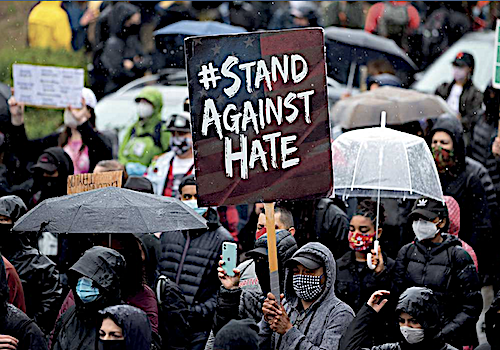Council of Europe on hate speech
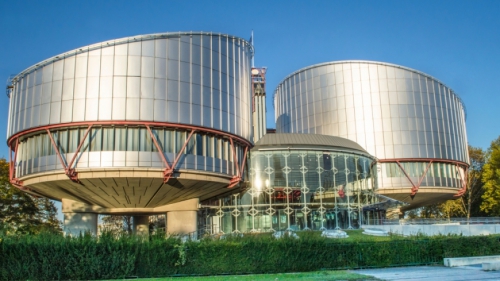
European Court of Human Right on Hate Speech
The European Court of Human Rights is an international court set up in 1959. It rules on individual or state applications alleging violations of the civil and political rights set out in the European Convention on Human Rights (the Convention).
The factsheet on hate speech of the European Court of Human Rights compiles the court's understanding of hate speech and its rulings on the issue in relation to the human rights articles of the Convention. The factsheet on hate speech and factsheets on related topics is found online in English and several other languages and is regularly updated.
A Thematic Factsheet issued by the Department for the Execution of ECHR Judgments provides examples of general and individual measures reported by States in the context of the execution of the European Court’s judgments concerning the combat against racially motivated hate crimes which may emanate from security forces, private individuals or groups targeting Roma and migrants, hate crime and hate speech targeting LGBTI persons and religiously motivated hate crime and hate speech.
Monitoring of hate speech, discrimination & hate crime

European Commission against Racism and Intolerance
Monitoring action to counter hate speech is at the heart of the mandate of the European Commission against Racism and Intolerance (ECRI). In 2015, it issued its General Policy Recommendation (GPR No 15) on Combating Hate Speech. This GPR contains a list of recommended measures against hate speech, including in the areas of legislation and policies, data collection, victim support, self-regulation and counter-speech by people in positions of influence, such as public officials, politicians and religious leaders. ECRI also actively contributed to the drawing-up of the Committee of Ministers’ Recommendation CM/Rec(2022)16 on combating hate speech adopted in 2022 and has considered it in its monitoring activities. In its ongoing country monitoring work (sixth monitoring cycle), one main chapter of its country reports is dedicated to what member states are doing to prevent and combat hate speech and hate-motivated violence, often considered a consequence of hate speech. ECRI critically assesses member States’ “performance” in countering hate speech andidentifies examples of promising and good practices in this area.
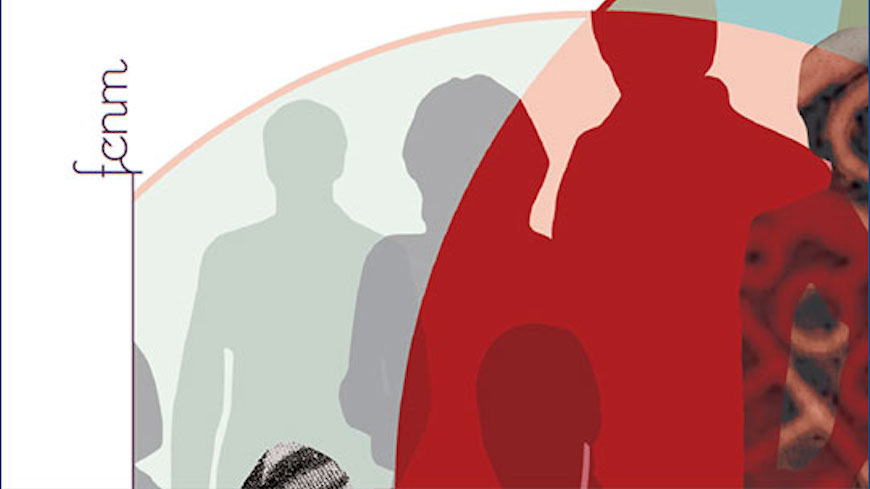
Framework Convention for the Protection of National Minorities
The states parties to the Framework Convention for the Protection of National Minorities undertake to take appropriate measures to protect persons from threats or acts of discrimination, hostility or violence as a result of their ethnic, cultural, linguistic or religious identity. On this basis, the Advisory Committee on the Framework Convention monitors the situation in 39 European states and Kosovo*. It addresses recommendations to governments on action to counter hate speech and hate crime. These include, among others, improvement of the legislative framework, effective investigation, enhanced recording and data collection, and awareness raising and training at all levels, including for law enforcement authorities.
The Committee of Ministers of the Council of Europe endorses recommendations by the monitoring committee.
*All references to Kosovo, whether to the territory, institutions or population, in this text shall be understood in full compliance with United Nations Security Council Resolution 1244 and without prejudice to the status of Kosovo.
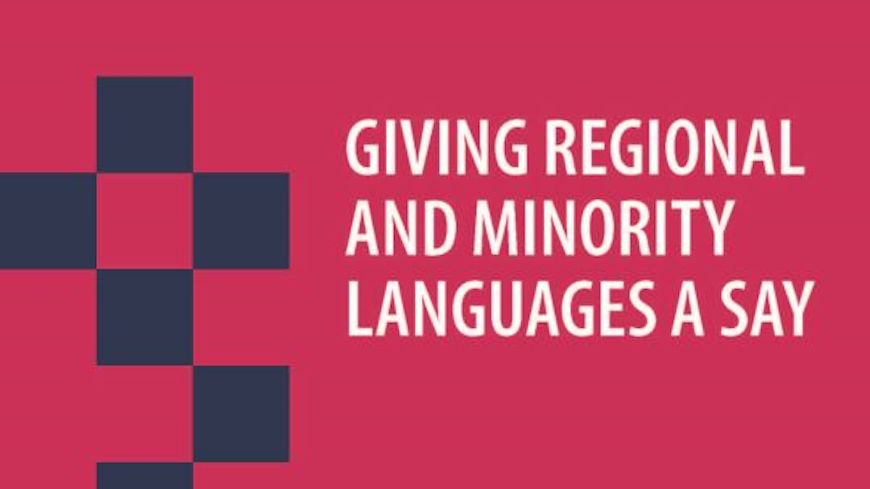
European Charter for Regional or Minority Languages
The European Charter for Regional or Minority Languages obliges its states parties to promote respect, understanding and tolerance in relation to all regional or minority languages used in their respective territories (Art. 7.3). In its monitoring work, the Committee of Experts of the Language Charter regularly recommends states parties to take action in education, training and media to prevent or end negative portrayal of regional or minority languages and their users in society.
The Committee of Ministers of the Council of Europe endorses recommendations by the monitoring committee.

Group of Experts on Action against Violence against Women and Domestic Violence (GREVIO)
The CoE’s Group of Experts on Action against Violence against Women and Domestic Violence (GREVIO) monitors the implementation of the Convention on Preventing and Combating Violence against Women and Domestic Violence (Istanbul Convention, CETS No. 210, 2011). In October 2021, GREVIO adopted its first General Recommendation “on the digital dimension of violence against women”, covering online sexual harassment, online and technology-facilitated stalking, and the digital dimension of psychological violence – all relevant in the context of combating sexist hate speech targeting women.
The Convention on Preventing and Combating Violence against Women and Domestic Violence (Istanbul Convention, CETS No. 210, 2011), is the most comprehensive international treaty addressing the root causes of violence against women, and calling for equality between women and men. The Istanbul Convention requests parties to criminalise forms of violence against women that relate to sexist hate speech, notably stalking and sexual harassment (Articles 34 and 40). It also calls for addressing gender stereotypical behaviour, traditions and practices which contribute to gender inequality and violence against women (Article 12).
(see also the section Sexist hate speech)
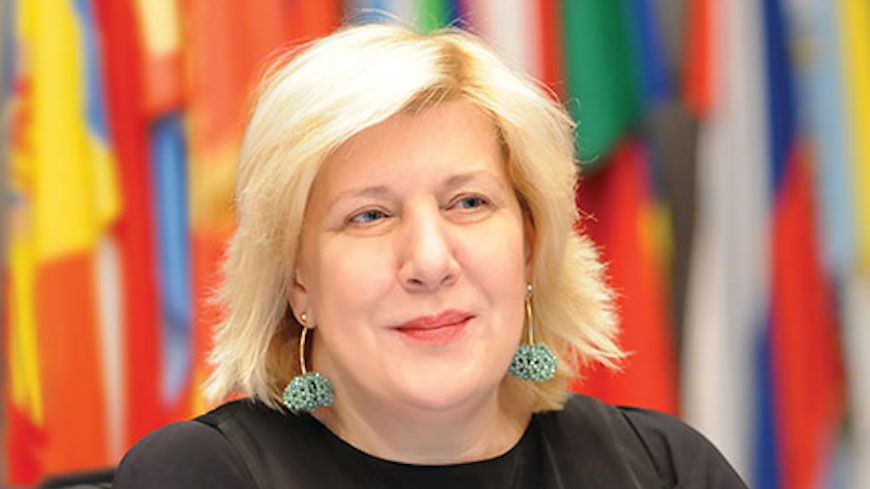
Commissioner for Human Rights on hate speech
Preventing and combating hate speech is a prominent topic in the work of the Council of Europe Commissioner for Human Rights, which focuses on three major areas: country work, thematic activities (see the thematic page on freedom of expression) and raising awareness of human rights. The Commissioner assists member states in implementing their obligations in this field, for example, by identifying shortcomings in their laws and practices and by encouraging reform measures. The Commissioner also provides advice and information on preventing and combating hate speech and raises awareness of the relevant standards through periodic articles and thematic publications and in the framework of seminars and other events. In addition, this topic holds an important place in the Commissioner’s work on the protection of human rights defenders and other civil society actors and in the office’s engagement with other Council of Europe bodies and with external partners.
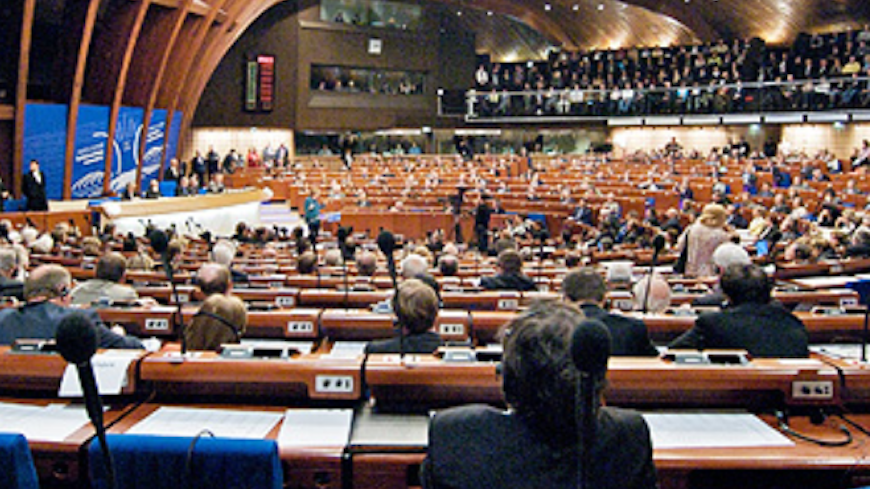
Parliamentary Assembly and hate speech
Within the Parliamentary Assembly, combating racism, intolerance and hate speech is the mission of the Committee on Equality and Non-Discrimination and the No Hate Parliamentary Alliance.
The Alliance was established by the Committee and is coordinated by the General Rapporteur on combating racism and intolerance.
All member of the Assembly who commit to taking a firm stance against hatred in all its manifestations may join the Alliance.
The Alliance conducts information and awareness-raising activities, such as hearings, seminars and conferences, within the Assembly and in national parliaments.
Promoting the Charter of European political parties for a non-racist and inclusive society is one of the main priorities of the Alliance.
Recently, the Alliance published a “toolkit on hate speech”, a handbook for parliamentarians that aims to provide legislators with arguments and examples of good practices on combating hate speech
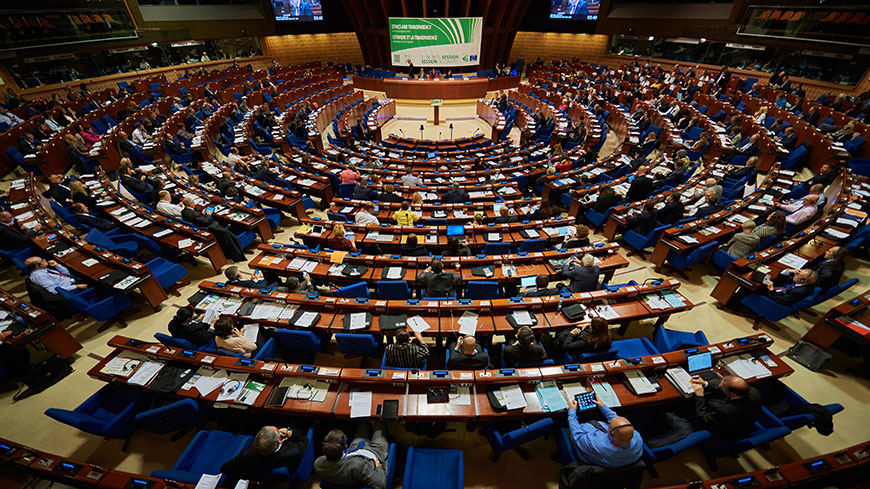
Local democracy and Hate Speech
The Congress of Local and Regional Authorities focused on the issue of hate speech by holding a series of thematic debates on mayors under pressure (2018, 2019) and by supporting an inter-university research project ”Counterfake” on hate speech and fake news . In October 2022 the Congress adopted a resolution and a recommendation accompanied by an explanatory memorandum on “Hate speech and fake news: the impact on working conditions of local and regional elected representatives”. Prepared by co-rapporteurs Wilma Delissen Van Tongerlo (Netherlands) and Kristoffer Tamsons (Sweden), the report on hate speech and fake news highlights the toxic impact of these phenomena, online and offline, on the working conditions of local and regional elected representatives and democracy. Furthermore, it helps with identifying the right tools and strategies for municipalities and regions to tackle hate speech and fake news. In the follow-up of this report, the Congress continues to work on hate speech and fake news. Check also information on the Congress work related to Inclusion and Anti-discrimination, and its co-operation programmes.
The Intercultural Cities Programme have produced learning materials for cities and local policy makers on alternative narratives and inclusive communication. Cities can play a crucial role in promoting alternative narratives, not only among their own residents, but also as role models and leaders of inclusivity at national and international level. They can use their authority to convene and coordinate the private and voluntary sectors, or other networks of stakeholders, in ways that elevate and align certain narratives above others.
The alternative narratives and inclusive communication course is a starting point for local officials and other stakeholders to build capacity for positive intercultural messaging and for the development of a public discourse to counter rumours, stereotypes and ultimately the spread of hate speech in relation to migration and integration.
See also the separate tab on use of Counter and Alternative Narratives for Human Rights as a means to push back against hate speech.

Media and hate speech
The Council of Europe Media and Information division operates in multiple manners to counter hate speech. The work in this area is based on a “freedom of expression perspective”. Freedom of opinion and expression is a fundamental human right, essential to the functioning of democratic societies and the human rights system. Article 10 of the European Convention on Human Rights protects the freedom to hold opinions and to receive and impart information and ideas without interference by public authorities and regardless of frontiers. However, it is not an absolute right. It may be restricted, as long as this is prescribed by law, necessary in a democratic society and proportionate to a legitimate aim, including national security, public health or the protection of the rights of others.
The European Court of Human Rights has developed a rich case-law on hate speech and incitement to violence. In doing so, it often had to balance the competing interests at stake. On the one hand, the need to preserve free speech, a cornerstone of democratic societies, and on the other hand, the need to protect individuals’ personality rights, the prohibition of discrimination, mutual respect and understanding within society or public order.
The Media and Internet division’s standard-setting work on hate speech concretized in the CM/Recommendation (2022)16, a text elaborated by the Expert Group ADI/MSI-DIS, mandated to task the recommendation by the CDMSI and the CDADI. The Recommendation provides guidance for member State to implement a comprehensive and calibrated set of legal and non-legal measures. It builds on International human rights standards and relevant case-law of the European Court of Human Rights and pays special attention to the online environment in which most of today’s hate speech can be found. The recommendation also addresses other key actors, including public officials, elected bodies and political parties, internet intermediaries, media and civil society organizations.
The 2022/16 Recommendation addresses media amongst the selected key actors playing an important role in democratic societies, in particular in respect of public debate, and are thus in a position to make specific and significant contributions to preventing and combating hate speech. It is essential for journalists and the media to enjoy editorial freedom, independence and autonomy, resting on strong protection for freedom of expression. Special attention should therefore be paid, and effective protection measures dedicated, to the situation of journalists, particularly those targeted by hate speech, such as female journalists and minority journalists. On the other hand, media organisations and journalists are encouraged to promote a culture of tolerance and understanding and to facilitate intergroup dialogue in their efforts to address hate speech. To this scope, media organizations should take concrete, specific and targeted steps towards ensuring that their workforces are diverse and inclusive, including in editorial decision-making. In their effort to seek, receive, impart and disseminate information, they should seek a multiplicity of sources and voices from within different communities. The Recommendation also notes that public service media are especially suited to promote pluralism and awareness of diverse opinions as well as counter- and alternative speech.
See also:
- The Recommendation CM/Rec(2016)4 on the protection of journalism and safety of journalists and other media actors
- The Council of Europe Recommendation CM/Rec(2018)2 on the roles and responsibilities of internet intermediaries, which provides guidelines for states and internet intermediaries

Internet Governance & hate speech
Through its Internet Governance work, the Council of Europe stands for a free and open Internet, with a people-centred approach for related policies. The aim is to provide timely and adequate responses to the challenges to human rights, democracy and the rule of law inevitably deriving from the
ever-evolving digital environment, building on a close co-operation with States, civil society and on the Digital Partnership with Internet companies.
The Convention on Cybercrime and, in particular, its First Additional Protocol, concerning the criminalisation of acts of a racist and xenophobic nature committed through computer systems and its Second Additional Protocol, on enhanced co-operation and disclosure of electronic evidence, are living international standards permitting hundreds of practitioners from Parties to share experience and co-operate for an effective criminal justice response in cyberspace, including on expressions of online hate speech subject to criminal liability. Through its capacity-building activities implemented by the Cybercrime Programme Office (C-PROC) based Bucharest, Romania and the Cyberviolence portal, and backed by the Cybercrime Convention Committee (T-CY), the Cybercrime Division is working across sectors to ensure human rights are upheld in cyberspace as well, for all, supporting the Council of Europe Strategic Framework 2022-2025 in the digital environment.
Hate Speech in the online environment may impact on privacy and data protection regulation. In that regard see the ‘Modernised Convention 108’ and its Explanatory Report, as also Recommendations:
- CM/Rec(2021)8 on the protection of individuals with regard to automatic processing of personal data in the context of profiling
- CM/Rec(2020)1 on the human rights impacts of algorithmic systems, and its guidelines: On Artificial Intelligence; on Big Data; and on Media and Privacy.

Sexist hate speech
Sexist hate speech online and offline is a daily phenomenon for many women that is not very visible and only beginning to be addressed. Some groups of women are particularly targeted by sexist hate speech for example young women, women of colour, women politicians or feminist activists. The Council of Europe has been addressing this issue notably through its work on gender equality and through standards: a recommendation on hate speech, and a recommendation on combating sexism accompanied by a Campaign Sexism : See it. Name it. Stop it!, with tools available in different languages.
The CoE’s Group of Experts on Action against Violence against Women and Domestic Violence (GREVIO) monitors the implementation of the Convention on Preventing and Combating Violence against Women and Domestic Violence (Istanbul Convention, CETS No. 210, 2011). It covers in its monitoring online sexual harassment, online and technology-facilitated stalking, and the digital dimension of psychological violence – all relevant in the context of combating sexist hate speech targeting women.
(See also section Monitoring of hate speech)
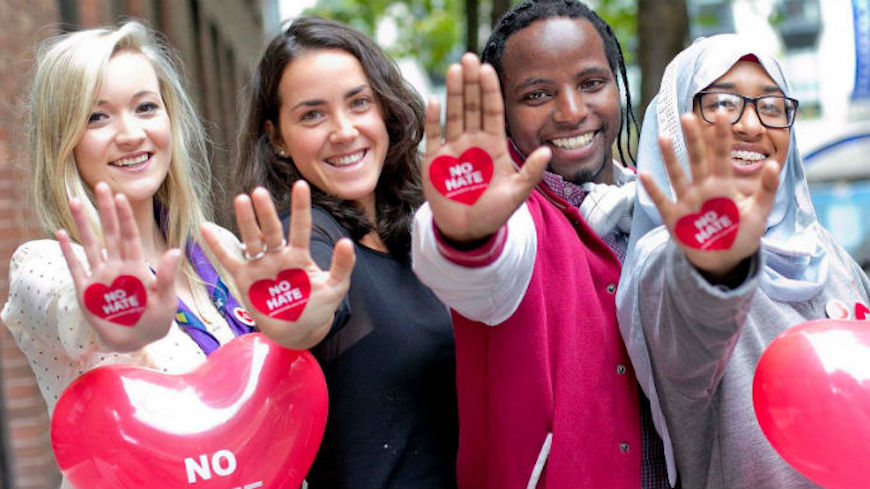
Young people combating hate speech / No Hate Speech Movement
The No Hate Speech Movement youth campaign was launched in 2013 by the Council of Europe on the initiative of the youth representatives in the Joint Council on Youth. This committee brings together youth leaders from the Advisory Council on Youth and the governmental representatives of the European Steering Committee for Youth.
The campaign mobilised young people to combat hate speech and promote human rights online. Launched in 2013, it was rolled out at the national and local levels through national campaigns in 45 countries.
Various educational resources were developed and made available and various langagues, including Bookmarks, a manual for combating hate speech through human rights education.
The movement remains active beyond 2017 through the work of various national campaigns, online activists and partners.
The Youth for Democracy programme continues to build on the legacy of the youth campaign, notably through human rights education, youth participation in Internet governance and combating discrimination affecting vulnerable groups of young people (including hate speech).
The Youth Department elaborates guidelines, programmes and legal instruments for the development of coherent and effective youth policies at local, national and European levels. It provides funding and educational support for international youth activities aiming to promote youth citizenship, youth mobility and the values of human rights, democracy and cultural pluralism. It seeks to bring together and disseminate expertise and knowledge about the life situations, aspirations and ways of expression of young Europeans.
Link to the site of the No Hate Speech Movement youth campaign.
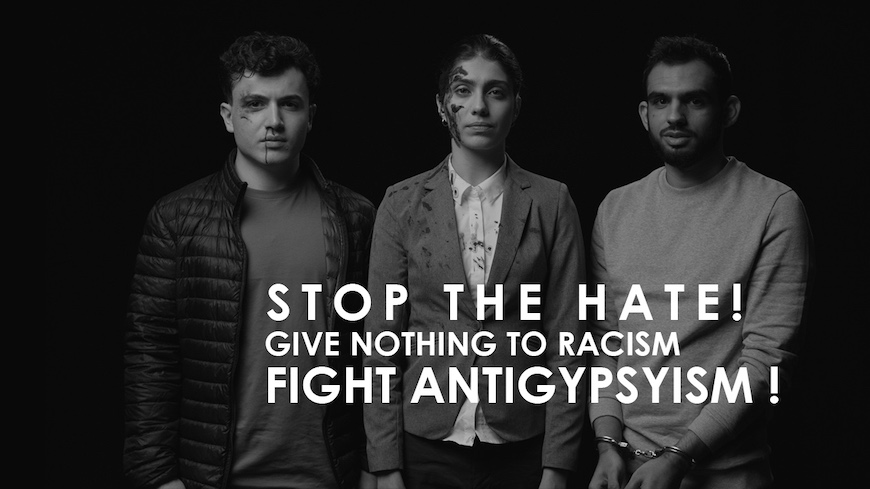
Roma and Travellers & hate speech
Monitoring bodies of the Council of Europe, such as the European Committee against Racism and Intolerance (ECRI), indicate that Roma and Travellers still suffer from widespread and persisting antigypsyism – recognised as a specific form of racism fuelled by prejudice and stereotypes - that they are still the victims of various forms of discrimination, and are frequently targeted by hate speech in political and public discourse, in the media and on the internet.
Roma and Travellers Team has constantly integrated in its actions measures to combat antigypsyism and hate speech against Roma, this being one of the priority areas set by the Council of Europe Strategic Action Plan on Roma and Traveller Inclusion (2020-2025).
Examples of such actions include: awareness-raising of the general public (see Dosta! Campaign; the analysis report on Antigypsyism- Causes – Prevalence – Consequences – Possible responses; the syllabus Understanding and Combating Antigypsyism, Anti-Roma Discrimination and Gender Inequality), training of the legal profession, public authorities and law enforcement in Council of Europe standards and relevant case law of the European Court of Human Rights (2nd edition of the Toolkit for Police Officers: Council of Europe standards on racially motivated crimes and non-discrimination), capacity building of national, regional and local level authorities and civil society, including through the Council of Europe dialogue mechanism with Roma and Traveller civil society (see Report of the 10th meeting of the Council of Europe Dialogue with Roma and Traveller Civil Society on Combating hate speech) or co-operation activities ROMACTED on “Promoting good governance and Roma empowerment at local level” in Bosnia and Herzegovina and Serbia, in close co-operation with the Block the Hatred. Share the Love! campaign.
*The term “Roma and Travellers” is used at the Council of Europe to encompass the wide diversity of the groups covered by the work of the Council of Europe in this field: on the one hand a) Roma, Sinti/Manush, Calé, Kaale, Romanichals, Boyash/Rudari; b) Balkan Egyptians (Egyptians and Ashkali); c) Eastern groups (Dom, Lom and Abdal); and, on the other hand, groups such as Travellers, Yenish, and the populations designated under the administrative term “Gens du voyage”, as well as persons who identify themselves as Gypsies. The present is an explanatory footnote, not a definition of Roma and/or Travellers.
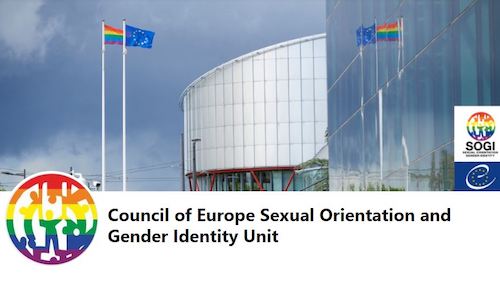
LGBTI persons & hate speech
The main objective of the work of the Council of Europe on sexual orientation, gender identity or expression and sex characteristics is to ensure adoption and effective implementation of legal, policy and practical measures to prevent and combat discrimination and violence on those grounds. This includes protection from hate speech against Lesbian, Gay, Bisexual, Transgender and Intersex (LGBTI) persons. The Sexual Orientation and Gender Identity Unit (SOGI Unit) works to support member States in implementing CM/Rec(2010)5 on measures to combat discrimination on grounds of sexual orientation or gender identity, as well as in policy-making and monitoring through an intergovernmental working group (GT-ADI-SOGI). It also provides tailor-made assistance to member states in implementing Council of Europe standards, including through the development of trainings for relevant professionals, such as the Policing Hate Crime Manual or the online courses on Fight Against Racism, Xenophobia, Homophobia and Transphobia. Over the next three years the SOGI Unit will also be launching and implementing the EU/CoE joint project “Preventing and Combating Anti-LGBTI Hate Speech and Violence”.
Sport brings people together. It contributes to health and well-being, breaking down barriers and building trust and community spirit. However, it can also exacerbate tensions or rivalries and foster discrimination against certain categories of the population, contrary to international standards, obligations and principles on fighting racism and discrimination. Although the Council of Europe have developed a sound regulatory framework, such as the European Convention on Spectator Violence and the Saint-Denis Convention, sports events are still far too often a forum for racism, homophobia, sexism and other manifestations of hate speech.
A new project on Combating Hate Speech in Sport started in January 2022. It explores the innovative approaches to address this phenomenon and provides technical assistance to public authorities and relevant sport stakeholders in France, Germany, Greece, Italy, Montenegro and Spain. The project is co-funded by the European Union and the Council of Europe, and is implemented by the Council of Europe’s Sport Division.
The project finds that despite an increased awareness about the seriousness of the problem, public authorities and sports organisations face major challenges when trying to address it. The conclusions after the evaluation of the state of play in the project countries reveal the importance of effective policies for prevention, mitigation, coordination as well as regarding the legal consequences and the rehabilitation of offenders. (see the #SportISRespect Workshop: Building strategies to combat hate speech in sport - Combating Hate Speech in Sport (coe.int)
The project website presents the methodologies for preparing national Fact Sheets, the strategic approaches and the #SportISRespect campaigns. It also lists examples of good practices that can help to harness the power of sport and bring about societal change, and the Resource Center contains existing instruments of the Council of Europe, EU and other stakeholders.
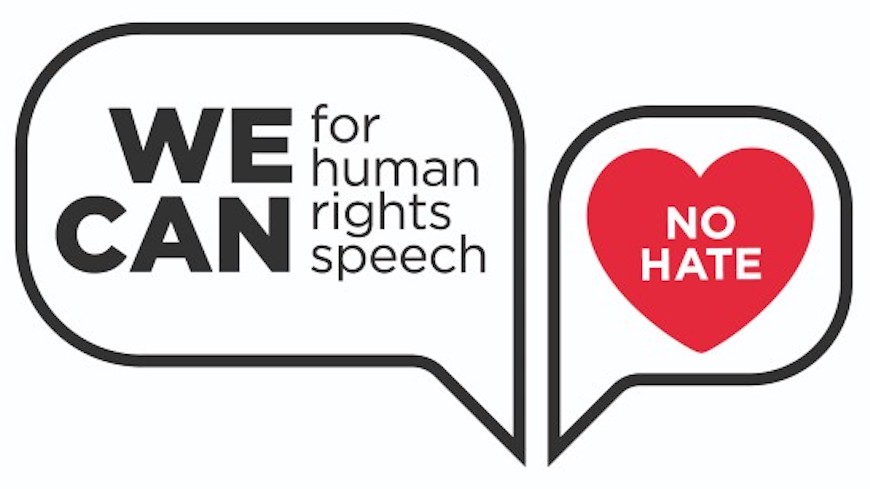
Counter and Alternative Narratives for Human Rights
Counter- and alternative speech are expressions of counter- and alternative narratives that are designed to combat hate speech by discrediting, deconstructing and condemning the narratives on which hate speech is based by reinforcing the values that hate speech threatens, such as human rights and democracy.
Counter- and alternative narratives to hate speech also promote openness, respect for difference, freedom, and equality. While counterspeech is a short and direct reaction to hateful messages, alternative speech usually does not challenge or directly refer to hate speech but instead changes the frame of the discussion. The use of counter- and alternative speech forms are particularly important for addressing hate speech that does not reach the severity level for being addressed via criminal, civil or administrative procedures.
The online tools of the We CAN for Human Rights project support awareness raising and develop counter-narrative initiatives, the three tools include:
- the Hate speech calculator: which helps assess the severity of the hate speech incident and how to respond
- Human Rights Narrative builder: which allows you to define your human rights arguments on a particular topic/issue to push back against hate
- Communication strategies toolbox: which provides step by step guidelines, checklists and specific tips for effectively using digital platform tools to disseminate your human rights speech.
The manual ‘We CAN!’ presents communicative and educational approaches and tools for youth and other human rights activists to develop their own counter and alternative narratives to hate speech.
Incidence of Hate Speech can have a long lasting and divisive impact on a community. A truly inclusive society guarantees the recognition of everyone’s equal dignity and identities. The hate motivation operates against all that, by signalling that groups within the community are not valued equally or not welcome. But equally other members of the community need to be engaged to prevent hate speech from spreading, not just reacting to it. One way to do so is to encourage citizens critical thinking, in particular towards Rumours. These are stories or pieces of stories that have the characteristic of quickly spreading from a person to another, and that can become very harmful when they are based on stereotypes about what someone or something is like.
The Anti-rumors methodology and its tools aims to counter diversity-related prejudices and rumours that hamper positive interaction and lay the foundations of discriminatory and racists attitudes. The aim of the methodology is to encouraging citizens awareness of the negative consequences of rumours and prejudice, and calling for their action.





